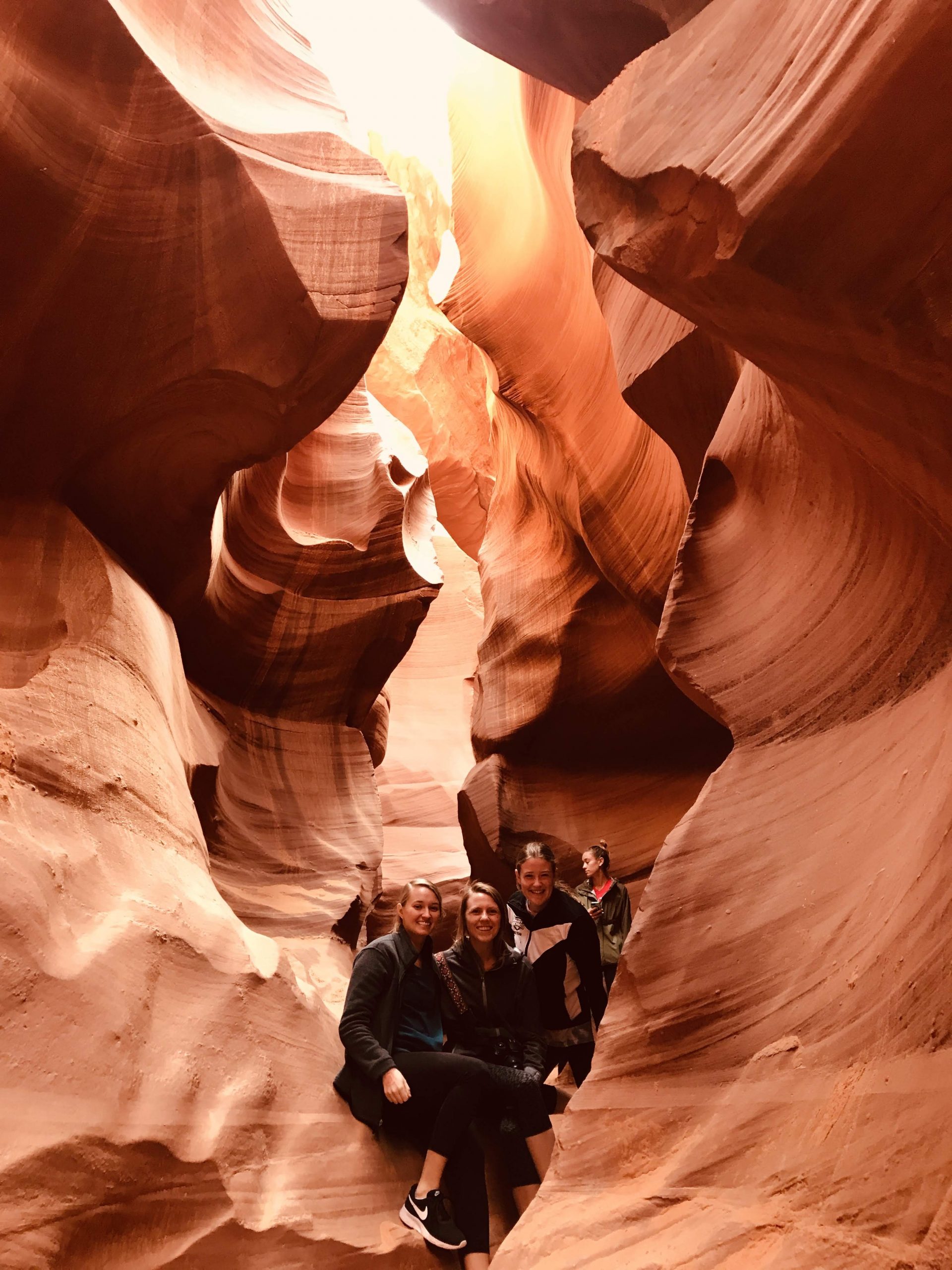By Becca Holland, a Mercy Volunteer Corps alumna who served at St. Michaels Navajo Reservation in Arizona (Navajo Nation)
My mother always told my brother, sister and me that we would vote in every election when we got old enough because it was our responsibility. She was definitely right—making your voice heard through voting is essential. Yet voting rates among young people are exceptionally low. As a 24-year-old woman, I understand completely the frustration my generation has with the entire process. More and more, it feels as though our voices are meaningless even when we do vote. Between the Electoral College, a lack of civic education and biased news media, young people often feel like the country has no interest in what our voices are saying.
I’m inherently an idealistic person, and also inherently a little bit radical. But even if many of my young friends and older family members aren’t quite as idealistic or radical, we do mostly agree that this country isn’t acting like it’s ours. In this year’s election, my biggest concerns are sexism, racism, income inequality, environmental justice and basic human decency. These are topics that I have always been very passionate about, and they all boil down to the same point: human dignity. Regardless of age, race, sex, gender identity, sexual orientation, class or any other identity, everyone should be afforded basic human dignity. I believe the way we achieve this is through structural changes that are desperately needed. This country was built by property-owning white men in the 1700s, and I don’t believe that the biases against every other demographic has been rectified yet. For example, anti-racist policies in housing, policing and education must be implemented in order to create the racially equal society people of color deserve. This clearly is not happening in the United States, so my preference in voting goes to the candidate who supports structural changes like these or is willing to make strides towards the changes that are necessary to achieve that equality.
I don’t believe my concerns and passions are unusual compared to those of many other young people. What is unique and special about our generation is that we tend to find common ground amongst our differing struggles. There are plenty of things that divide our generation politically, but I (maybe naively) believe that many of us feel a common struggle with those who are different from us. While young people are not a monolith by any stretch, I’ll never forget my 88-year-old grandmother (who tends to disagree with me on almost everything politically) saying to me that something was different about this generation, that we were more compassionate and wanted to give back more than any generation she had ever seen. She and I believe this is the reason my generation has differing priorities of generations past. Many of us sit in our socio-economic, gender or racial privilege and are still able to see the injustices against people in our own country. And while we continue to have struggles that are similar to those of generations before us, we are more willing to find the common struggle and fight for change with others who aren’t like us.

Young people in general are hungry for change. In my pursuit of a master’s degree in international development, I’ve had the privilege of talking about politics and critical issues that my fellow classmates find important. And with the wide variety of backgrounds and places of origin among my classmates, it has been illuminating to see that we all want similar things: we all want everyone to be treated with human dignity.
We all also know that voting is not the only avenue for the changes we want to see. Protests, rallies, letter-writing campaigns, phone calls to representatives, town halls, social media campaigns and other events offer opportunities for young people to get involved in the political process. However, if there is one thing we can all do, it is vote. Even my less passionate friends know that voting is essential. Cognizant of the struggle many people face in order to exercise their right to cast a ballot in this country, many young people I know are willing to fight for it. Many of us are ready for our voices to be heard, and that first step is casting a ballot—whether in person, by mail or via ballot drop box—in the upcoming election on November 3.